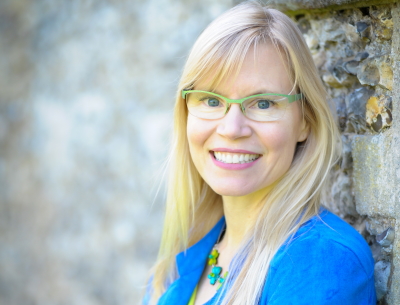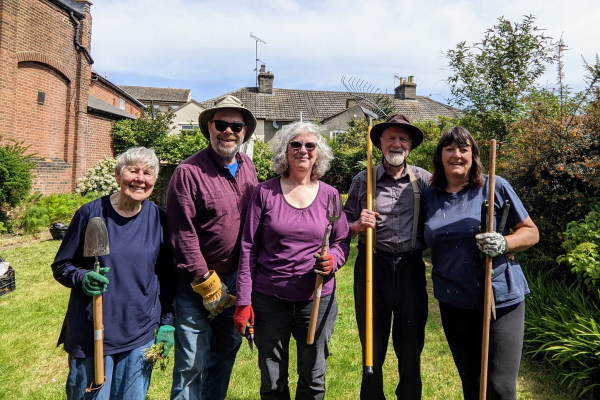How to make retirement work for you
Updated: 28 Jan 2025
On the surface, retirement is an attractive prospect. You don’t have to work and you’ve got all the time in the world to do the things you want to. But reality can be very different, and the lack of structure may actually feel like a loss of freedom.
A massive life transition
Leaving work often removes a sense of purpose, as well as reliable and regular opportunities to socialise with friends and colleagues. So, instead of feeling calm and relaxed in your retirement, you can end up feeling lonely and isolated.
The good news is, by giving your new lifestyle the same attention and focus you gave your career, you can build a social life and friendship network to ensure you feel supported, confident and fulfilled.

Dr Wild (pictured), Professor of Psychology at the University of Melbourne and author of Be Extraordinary: 7 Key Skills to Transform your Life from Ordinary to Extraordinary, explains: “We often think of retirement as a good thing, but it’s a massive life transition.
“People can struggle to find an identity outside of the workplace and even begin to grieve their former life which, if unresolved, can lead to loneliness and depression.
“However, by recognising the transition and looking at ways to fill your days in meaningful ways, you can find a sense of purpose that will keep you active and help you relax and enjoy your retirement at the same time.”
Find a fresh purpose
Whether you enjoyed a varied and exciting career, or you saw your employment as a means to an end, most of us are likely to struggle with our identity once that time-consuming part of our life is removed.
Dr Wild explains that the key to settling into retirement is finding new ways to fulfil those needs which were regularly met during your career, such as expressing creativity or challenging your brain.
She said: “Retirement is wonderful, but it can lead to a personal struggle in relation to your identity.
“A good way to tackle this is to identify the meaning of what you are missing and trying to find new ways of replicating that.”
She added: “If you miss colleagues and the camaraderie of the office, then you can look at local societies or friendship groups, such as the Oddfellows, where you can meet up regularly with people for lively conversation.
“Or, if you used to work with children and your days were playful and fun, think about what you can do today to bring some of that playful energy and joyfulness into your retirement. It could be as simple as finding ways to spend time with children, such as looking after grandchildren, volunteering, or activities that make you feel youthful.
“By identifying what you are missing and finding a way to bring it back into your life, your days will feel more fulfilled.”

Kevin, second from left, and Teresa, centre, are making the most of their retirement with Oddfellows friends.
Kevin and Teresa Marrable, from Ipswich, said their local Oddfellows group helped keep them active when the initial excitement of retirement wore off.
Kevin, 68, said he missed talking to people. He said: “We both had things we wanted to do such as renovations and making the most of our free time, but about a year after we retired we needed new ways to fill our days.”
Teresa, 65, added: “The good thing about the Oddfellows is that it’s varied – there’s something to suit everyone’s needs and tastes.
“The option to volunteer, even if it’s just signing up to wash up each week or help clear away, can be really good for your mental health and wellbeing, and give you that sense of purpose and reward of working as part of a team.”
Find your freedom
While it is encouraged to look at how you can fulfil some needs you have lost through retirement, it can be tempting to look back at your life through rose-tinted glasses, making you miss it even more.
Dr Jennifer suggests keeping a balanced view, remembering the things you didn’t enjoy about working and reminding yourself to be thankful.
She said: “Retirement is a massive life transition, and you are likely to develop many of the feelings associated with loss. So it’s just as important that you remember the things you didn’t like and no longer need to adhere to, such as working long hours, commuting, or leading a hectic lifestyle trying to balance your personal life with a demanding career.”

Make plans and stick to them
A lack of routine can also be responsible for bashing our confidence and making us feel vulnerable. Planning ahead – even if it’s just for a day – is a good way to combat this.
“Planning ahead is a simple way of improving wellbeing,” says Dr Wild. “Every night, including the weekends, you make a plan for the day after – making sure you factor in an enjoyable activity. It’s best to think about it in small time segments, maybe 30-minute chunks. You’ll be surprised how fast days fill up in this way, especially when you factor in things like taking a shower or walking to the post office etc.
“It sounds simple and obvious, but studies have found this dramatically reduces psychological distress and improves wellbeing. If you have a routine in place for the next day, it frees up mental energy to deal with new things and to problem solve effectively. Having structure and activities to absorb you may also reduce the opportunity for dwelling on negative feelings.”
Plan for the future
Dr Wild added that retirement can lead to a sudden awareness of mortality, as ‘death’ is often thought of as the next and final milestone in life. With this in mind it’s important not to give up on making shorter-term plans and goals.
She said: “We spend our life gearing towards the next milestone, whether that’s raising a family, working towards a promotion or goal, but by the time we have retired we have often achieved them or they are no longer viable, so this can lead to us thinking about our own mortality.”
She added finding new milestones will help to tackle this problem. Try to pinpoint what you loved about working then discover activities that could recreate the positive aspects of your career, such as applying your thinking hat to projects you might now take up, stimulating your mind with learning new skills or choosing pursuits that strengthen your sense of purpose.
If you dream of going on lots of days out, then think about how you can expand your friendship network.
Dr Wild’s advice for those who have retired is to focus on a ‘dream day’ rather than an achievement. She said: “This is a really positive habit to form as it makes us focus on immediate and fulfilling activities – dreams that can happen right now precisely because we have the time.
“As with all goals, you simply need to ask yourself what you need to do to achieve that dream. If your dream day is to spend more time with grandchildren then perhaps you need to think about moving closer to where they are or take positive steps to tell your children that you want to spend more time with them.
“If you dream of going on lots of days out, then think about how you can expand your friendship network, perhaps joining a club or organisation such as the Oddfellows so you can meet other like-minded people who’d enjoy this too.
“Once you have identified these things the present and the future look less scary.”
Oddfellows friendship groups
Whether a lack of routine has hindered your ability to enjoy your retirement, or anxiety around meeting new people is putting you off, now is the time to enjoy your freedom rather than feel imprisoned by it.
If you'd like to meet other retirees in your area or find out about volunteering opportunities with us, we're always ready to welcome new members to our local Oddfellows friendship groups.
You can find your nearest by using our Branch Finder, or use our Events Finder to search for social events and activities happening near to where you live or online.
Contact us to request your free information pack and local events diary.
Read more advice on making friends in later life and building social confidence in our friendship guides section.
About Dr Jennifer Wild
Dr Jennifer Wild is a consultant clinical psychologist and professor at the University of Melbourne and the University of Oxford. Her book, Be Extraordinary: 7 Key Skills to Transform your Life from Ordinary to Extraordinary, is about how to transition from ordinary to extraordinary. For more information go to www.beextraordinarybook.com.
DISCLAIMER: Links to third-party sites do not constitute an endorsement by the Oddfellows and use of the advertised products and services is entirely at your risk. The Oddfellows does not accept any liability or responsibility for any third party material on other websites.




